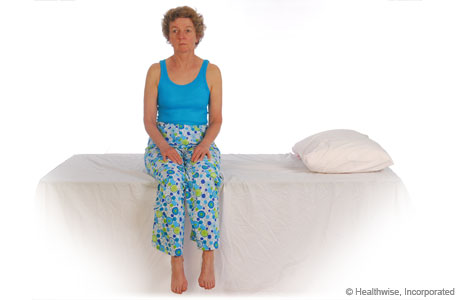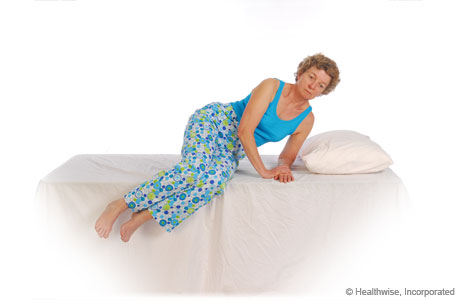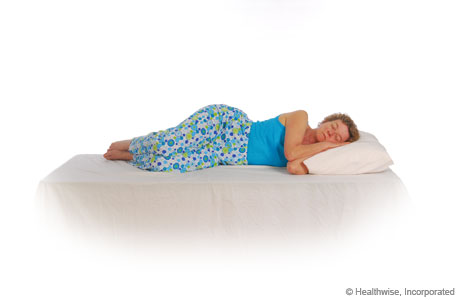Log roll method
If you’ve had surgery on your back or belly, an injury to your trunk, or pain in your back, then you know that bending and twisting can cause more pain or injury. Follow these steps to get in and out of bed without bending or twisting.
- Before you lie down, stand with the back of your legs touching the bed.
- Reach your hands back toward the bed as you bend your knees.
- Use your arms to help lower yourself to sit on the side of the bed.
To get out of bed, do the same steps in reverse:
- Lie on your side, facing the direction you want to get out of the bed.
- Use your arms to help raise your upper body as you lower your legs to the floor.
- Sit straight on the side of the bed.
- Use your hands to help push yourself up to a standing position.
Getting ready to lie down

When you are getting ready to lie down, don’t rush it. Keep the center part of your body (your trunk) straight. Think about lowering your body without twisting.
Supporting your trunk

With your trunk straight, use your arms to help lower your upper body to the bed. Your arms can support your upper body weight and keep you from twisting. The idea is to keep your trunk in one stable position as you lower your upper body and raise your legs.
Lying down

Keep your trunk straight after you lie down. You may want to put a pillow between your knees to keep your back in a neutral position. If you roll onto your back, you may want to put a pillow under your knees for support.
Current as of: June 26, 2019
Author: Healthwise Staff
Medical Review:Kathleen Romito MD – Family Medicine & Joan Rigg PT, OCS – Physical Therapy
This information does not replace the advice of a doctor. Healthwise, Incorporated, disclaims any warranty or liability for your use of this information. Your use of this information means that you agree to the Terms of Use. Learn how we develop our content.

